In this article, we will share some key takeaways from the Edelman Trust Barometer 2023 report for purpose-driven marketing.
It’s a pity that Israel isn’t among the 27 countries that have been monitored for the past 23 years by Edelman, a global communications firm. But even without mentioning Israel directly, the report teaches us how important it is for brands to take a stand on social issues. The 2023 report reveals the growing role of businesses in building trust and bridging divides in an increasingly polarized world.
Here is a link to the full report.
Businesses as trust-builders
Businesses emerged as the most trusted institution, with 61% of global respondents expressing confidence in them. This is in stark contrast to the government (52%), NGOs (57%), and media (45%), which have all struggled to gain trust in the midst of polarization and the erosion of public faith.
CEOs as leaders of change
The report highlights that 74% of respondents believe CEOs should take the lead in creating change rather than waiting for the government to impose it. This indicates a shift in public perception where businesses are seen not only as economic drivers but also as agents of societal change.
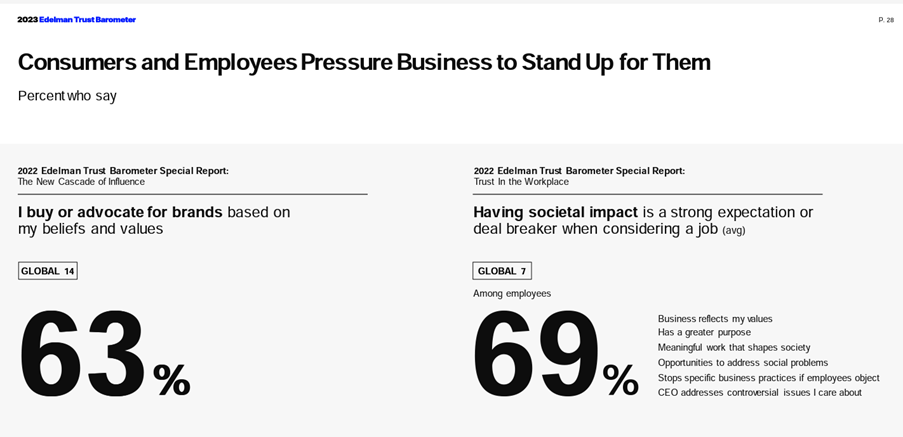
Employee trust is vital
Employee trust has emerged as a critical factor in the overall trust equation, with 77% of respondents believing that a company’s treatment of its employees is a major determinant of trust. Ensuring fair wages, good working conditions and a commitment to employee well-being are essential for businesses to gain public trust.
The importance of purpose and values
The survey also emphasizes the importance of businesses having a clear purpose and strong values, with 72% of respondents stating that a company’s purpose and values are crucial factors in determining trust. This underlines the need for businesses to be transparent and authentic in their mission and operations.
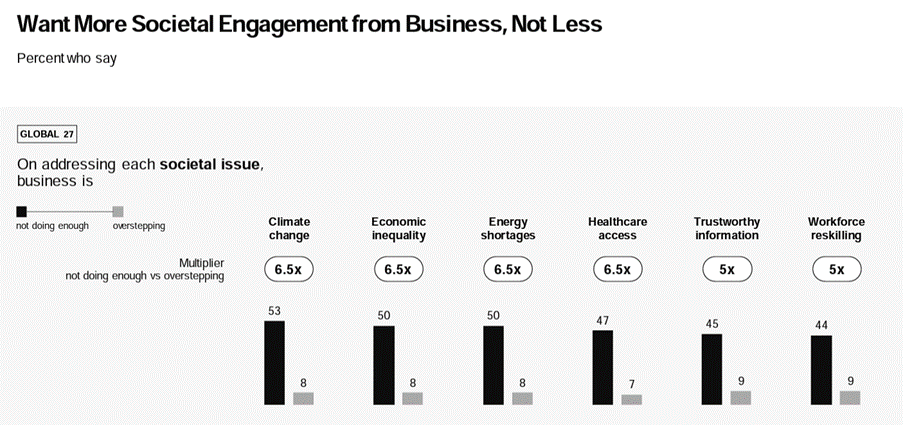
The role of business in bridging divides
Lastly, the Trust Barometer points to the role of businesses in addressing societal issues and bridging divides. Nearly 70% of respondents believe that businesses have a responsibility to bring people together and help overcome the societal fractures that plague our world today.
Implications for Businesses
These findings carry significant implications for businesses. In order to maintain and build trust, they must:
- Embrace a broader role in society: Businesses need to recognize their responsibility to not only their shareholders but also their stakeholders and the broader community. They must actively engage in tackling societal issues and work towards creating a more inclusive and equitable world.
- Prioritize employee well-being: Companies must ensure fair treatment of their employees, as this is a key determinant of trust. This includes providing competitive wages, good working conditions, and promoting overall employee well-being.
- Cultivate strong purpose and values: Businesses must develop a clear purpose and uphold strong values that resonate with their customers, employees, and stakeholders. Transparency and authenticity are essential in this regard.
- Encourage CEO activism: As public opinion shifts, CEOs are expected to be at the forefront of change. They must actively participate in societal debates and advocate for policies that benefit both the business and the broader community.
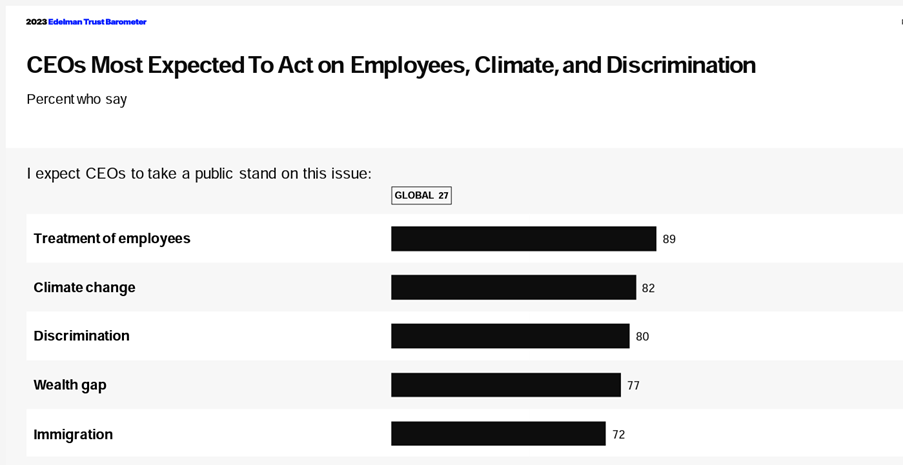
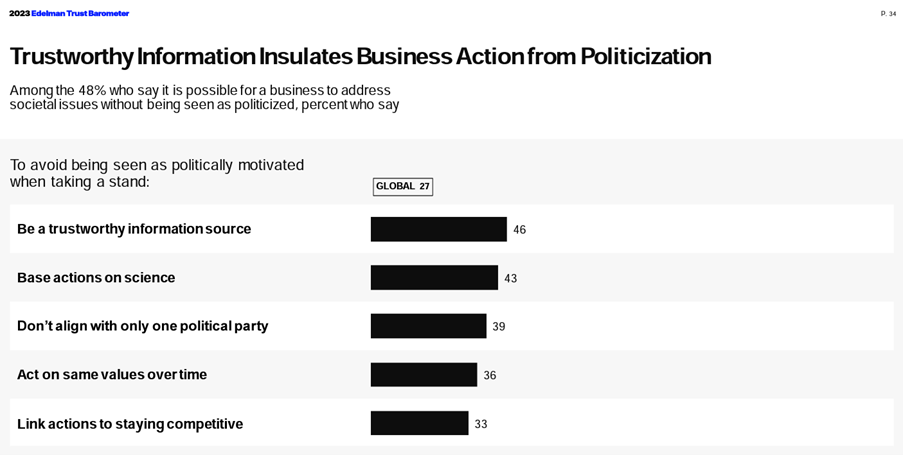
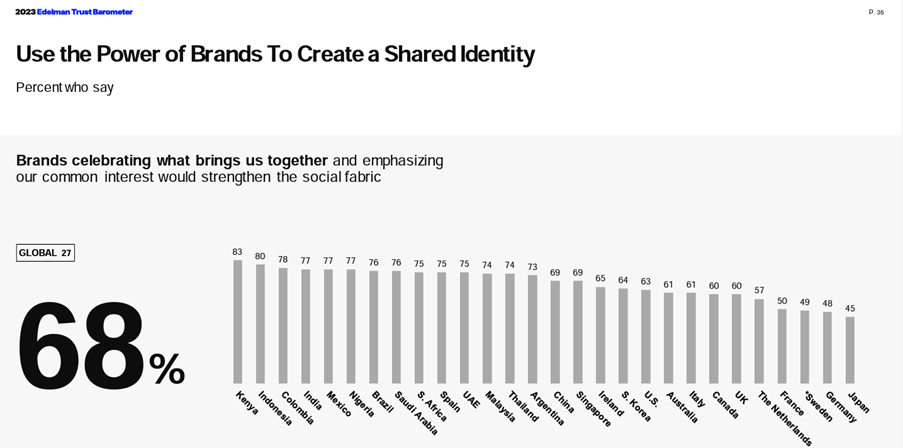
Israel is marred by polarization; businesses should emerge as a beacon of hope and an unshakable force capable of bridging the divide.
We’ve all seen how among others, the Israeli high-tech sector stood up for democracy in recent months. We should stand up more often, stand up for social inclusion, sustainability, and fairness, and stand up for the truth.
By cultivating a strong purpose and embracing our broader role as marketers, and CEOs in society, Israeli businesses have the potential to build trust and contribute to a more unified and prosperous society.






